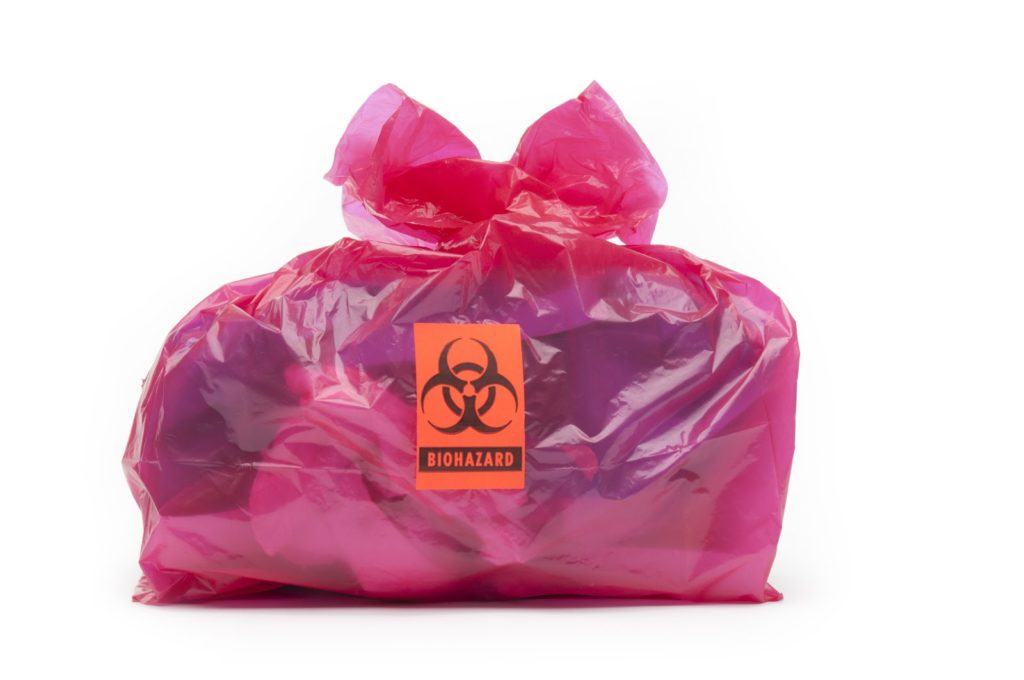Medical Waste Removal Quality: Your Relied On Partner in Safe Biohazard Disposal
Medical Waste Removal Quality: Your Relied On Partner in Safe Biohazard Disposal
Blog Article
The Importance of Proper Waste Disposal Practices
From the repercussions of improper waste disposal on our setting to the long-term ramifications for future generations, the significance of adopting lasting waste administration methods can not be overstated. By discovering the environmental impact of reckless waste disposal, the advantages of recycling campaigns, and the importance of community engagement in waste reduction efforts, a deeper understanding of why proper waste disposal techniques are essential emerges.
Environmental Effect of Improper Disposal
Incorrect disposal of waste postures a considerable hazard to the environment as a result of its harmful results on ecosystems and human health and wellness. When waste is not correctly handled, it can bring about pollution of the air, soil, and water, causing damage to various plant and pet types. click here. Chemicals and toxins from incorrectly disposed waste can permeate into the ground, polluting groundwater sources and influencing the health and wellness of both wild animals and humans
In addition, the buildup of waste in land fills generates greenhouse gases like methane, adding to environment adjustment and worldwide warming. Improper disposal methods also cause littering, which not just degrades the aesthetic worth of the atmosphere however can additionally damage wild animals through consumption or complexity.
To minimize these ecological influences, it is critical for communities and people to embrace appropriate waste disposal techniques such as reusing, composting, and responsible harmful waste disposal. By taking these actions, we can assist secure communities, protect natural deposits, and safeguard human wellness for future and current generations.
Benefits of Recycling Programs
Routinely getting involved in reusing programs supplies many benefits for both the atmosphere and culture as a whole. This conservation of sources not just assists in keeping eco-friendly equilibrium however also contributes to lasting growth.
In addition, reusing plays a vital function in decreasing energy intake and greenhouse gas discharges. The manufacturing of products from recycled products generally needs much less power contrasted to making from virgin sources - medical waste removal. Because of this, the carbon impact linked with the manufacturing process is dramatically reduced, aiding in the battle against environment change
In addition, recycling programs produce job chances in the reusing sector, promoting economic development and social well-being. By urging the recycling and reuse of materials, these programs support a round economic situation that decreases waste generation and maximizes source effectiveness, eventually resulting in a cleaner, greener future for generations to come.
Hazardous Waste Administration Guidelines
Carrying out reliable hazardous waste administration guidelines is essential for minimizing ecological and health and wellness threats linked with the incorrect disposal of hazardous products - click here. Proper handling, therapy, and disposal of harmful waste are important to prevent contamination of soil, water sources, and air
One key guideline appertains labeling of contaminated materials containers to guarantee secure handling and transportation. In addition, centers have to comply with strict storage requirements to avoid leaks, spills, or accidents that might jeopardize human health and wellness and the setting. Routine training programs for staff members on unsafe waste monitoring techniques are also important to guarantee conformity with policies and promote a society of safety and security.
Furthermore, contaminated materials should be set apart based upon its homes to protect against chain reactions that might result in harmful situations. Implementing an extensive waste tracking system can help keep track of the activity of dangerous materials from generation to disposal, making certain transparency and responsibility. By following these standards faithfully, services and industries can add to a safer and cleaner atmosphere for future and present generations.
Neighborhood Participation in Waste Reduction
To properly deal with the ecological and health and wellness threats linked with harmful waste click here administration, involving the community in waste decrease initiatives is extremely important. Community participation plays a vital role in advertising lasting waste administration practices and promoting a society of ecological responsibility. By informing citizens about appropriate waste segregation, reusing, and composting techniques, areas can dramatically lower the quantity of waste sent to land fills, thereby minimizing ecological air pollution and preserving natural deposits.
Community engagement in waste decrease programs additionally aids in increasing awareness about the value of waste minimization and urges people to adopt environmentally friendly routines in their day-to-day lives - medical waste removal. Collaborative efforts in between regional authorities, waste monitoring business, and neighborhood members can bring about the execution of effective waste decrease strategies tailored to the certain requirements of each neighborhood or town
In addition, community interaction promotes a feeling of ownership and accountability amongst locals, empowering them to take proactive actions towards minimizing waste generation and promoting a cleaner, much healthier atmosphere for future and existing generations. By collaborating in the direction of typical waste reduction goals, neighborhoods can make a considerable effect on alleviating the adverse effects of inappropriate waste disposal techniques.

Future of Sustainable Waste Practices
The evolution of sustainable waste methods is critical for advancing environmental stewardship and resource preservation in the coming years. As the international population continues to expand, so does the quantity of waste produced (medical waste removal near me). Conventional waste disposal techniques, such as landfilling and incineration, are no more lasting in the long term as a result of their substantial environmental effects. Moving onward, the future of lasting waste techniques exists in accepting a round economic situation method, where resources are reused, reused, or repurposed to decrease waste generation.
Technical advancements play a key function in forming the future of lasting waste techniques. Advanced waste sorting and recycling innovations can assist improve the performance of waste management processes, enabling for the healing of useful resources from waste streams. In addition, the fostering of biodegradable materials and composting techniques can help in reducing the amount of natural waste winding up in land fills, therefore minimizing greenhouse gas exhausts.
Moreover, promoting consumer awareness and education on correct waste partition and disposal techniques is essential for driving behavior adjustment towards sustainability. By fostering a culture of waste reuse, recycling, and reduction, neighborhoods can collectively add to a cleaner and healthier setting for future generations.

Conclusion
In conclusion, proper garbage disposal methods are important for reducing environmental effect and advertising sustainability. By carrying out reusing programs, taking care of dangerous waste appropriately, and encouraging community participation in waste reduction initiatives, we can work towards a cleaner and healthier atmosphere. It is very important for services, governments, and individuals to focus on lasting waste practices for the future wellness of our planet.

From the repercussions of improper waste disposal on our environment to the long-lasting ramifications for future generations, the importance of taking on sustainable waste management methods can not be overstated. By exploring the ecological effect of careless waste disposal, the benefits of recycling efforts, and the significance of area engagement in waste reduction efforts, a much deeper understanding of why correct waste disposal practices are essential emerges.
By informing locals concerning proper waste segregation, reusing, and composting strategies, areas can dramatically reduce the quantity of waste sent out to land fills, consequently lessening ecological air pollution and preserving natural resources. (click here)
Moving onward, the future of sustainable waste techniques exists in embracing a round economy strategy, where sources are recycled, recycled, or repurposed to lessen waste generation.
Advanced waste sorting and reusing technologies can aid enhance the effectiveness of waste monitoring procedures, allowing for the healing of valuable sources from waste streams.
Report this page